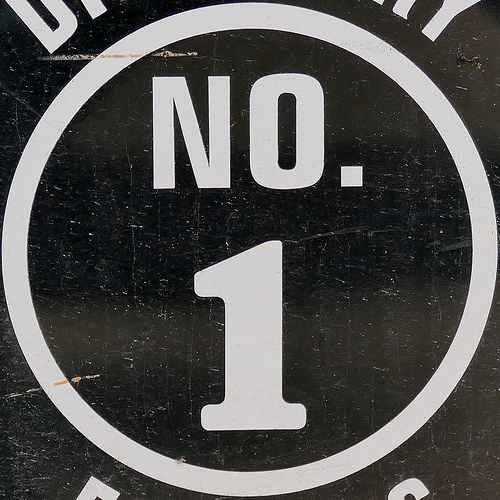
Natural talent?
Sheer amount of practice time – the blood, sweat, and tears they shed for their craft?
Not exactly.
The way we view top-level performers has changed dramatically over the years. We used to think people who produced such remarkable work were qualitatively different than the rest of us. For a long time, the idea of “natural talent” kept scientists from really delving into the topic of excellence.
Then came books like Malcolm Gladwell’s Outliers, which came to the conclusion that mastery takes thousands of hours of devotion to one’s craft. The “10,000 hour rule” was born.
But groundbreaking research by psychology professor K. Anders Ericsson revealed an often overlooked aspect of mastery: quality of practice time is just as important as quantity.
It’s a subtle distinction, but a crucial one. Figuring out how to apply it will make a huge impact on your business.
The Dangers of Falling into Your Comfort Zone
During your first few years in business, everything’s new and exciting. Sure, there’s stress and tough times. But there’s also a lot of real-world learning going on too.
Running a business teaches you things you’d never learn from lectures or books. There’s no substitute for that proven, on-the-ground experience.
Yet over time, the excitement fades. You settle in to a routine of marketing, nurturing leads, and keeping clients happy. Your schedule is full… but you’re growing what feels like a sustainable business.
Becoming an expert-level talent – someone who dominates their niche – pays off in the most interesting opportunities, the best reputation, and the ability to charge multiple times more than others without having customers bat an eye.
But 99% of people won’t ever get there.
It isn’t due to a lack of good intentions, either. After all, people are already paying you for your expertise. Finding the time (or motivation) to practice your skills is tough when it means turning down moneymaking opportunities.
And many people who do dedicate time to practice every day won’t reach the highest levels…
Why?
Why Most People Never Become Elite in Business

Consider the typical path of a high-level (but not expert-level) performer:
At first they improve rapidly. There’s a lot to learn, but progress comes quickly when motivation is high.
But then that improvement starts to taper off. People see diminishing returns, putting in more and more effort, until they reach a stage that Maria Popova from Brain Pickings calls the “OK plateau.”
The OK plateau is “the point at which our autopilot of expertise confines us to a sort of comfort zone, where we perform the task in question in efficient enough a way that we cease caring for improvement.”
In other words, we get good enough to serve our customers comfortably, but we end up spending the majority of our workdays on autopilot. Our skills stagnate over time. It becomes extremely difficult to really jump “to the next level” in quality of work output if this is our only practice.
Competent performers might spend plenty of time honing their craft. That’s necessary, but not sufficient, for expert-level output.
To reach that highest level, they’ll have to change how they’re honing their craft. They’ll have to change the way they practice.
What Is Deliberate Practice?
Let’s start at the beginning:
What is deliberate practice?
Corbett Barr sums it up nicely. He defines deliberate practice as a “highly-structured activity engaged in with the specific goal of improving performance.”
Top performers in a wide range of disciplines – everything from musicians and athletes, to CEOs and chess grandmasters – have embraced this type of practice to reach the pinnacles of their fields. So can you!
How Is It Different Than “Normal” Practice?

Most of us don’t consider what we do day-to-day in our business “practice” at all. We’re just finishing projects, marketing, and serving customers and clients.
We are practicing in a way, but it’s subconscious. We just keep chugging away trying to hit Gladwell’s 10,000 hours and build our skills through sheer repetition.
Deliberate practice is much different because it’s conscious and difficult. It forces us to focus on our weaknesses instead of our strengths.
Journalist Joshua Foer explains the distinction well:
When most musicians sit down to practice, they play the parts of pieces that they’re good at. Of course they do: It’s fun to succeed. But expert musicians tend to focus on the parts that are hard, the parts they haven’t yet mastered.
When you practice deliberately, you put yourself into challenging situations that push you to the edge of your comfort zone. Riding the “edge of your competence” builds new skills and helps you continue to improve.
What Are the Key Ingredients?
Here are the common elements of effective deliberate practice courtesy of MIT professor and author Cal Newport:
- Designed to improve performance. Deliberate practice should stretch your abilities and get you out of your comfort zone. Most day-to-day work doesn’t do this.
- Repeated a lot. It’s not just enough to practice deliberately; it’s combining deliberate practice with high repetition that develops expert-level skills and intuition.
- Generates feedback. How well is your practice going? Your opinion doesn’t count, unfortunately. Relying on hard numbers when you can (sales, analytics statistics, etc.) will help you fine-tune your skills.
- Mentally demanding. Deliberate practice takes concentration and focus. That’s what separates it from “autopilot” activities where you just do the same things you’ve always done.
- It’s hard. Focusing on your weaknesses instead of your strengths isn’t always fun… but that’s what it takes to reach the top of your field.
- Requires good goals. Watch out for vague goals with results outside your control. Good goals are more about the process (which is in your control). Look into SMART goals.
Making Deliberate Practice Work for Your Business
Deliberately practicing for your business might seem more complicated than something with clear rules and objective markers of success (like golf or chess)…
But it doesn’t have to be. Try these tips to distill your business skills into small, manageable chunks and develop the practice regimen you need to become a true expert:
Forget about Being an Instant Success

This idea is ingrained deep in our culture.
But it’s time to ditch it before you go any further.
The news is loaded with stories of “overnight success.” Start-up founders. Writers who exploded out of obscurity to earn hundreds of millions on their book series.
Becoming the next overnight sensation is an attractive idea. No doubt. When you buy into it, you get to shift the responsibility for your own success over to luck or the right circumstances.
This is dangerous because people use it to justify why they keep doing what they’re doing. They weren’t an overnight success like so many others they hear about… so why try to change things now?
The reality: behind virtually every “overnight success” rests 10 or more years of consistent, deliberate practice on their craft. In a study of 500 of the world’s most influential symphony pieces (covering 76 composers), cognitive psychology professor John Hayes found that virtually every piece was written at least 10 years into the composer’s career.
It’s time to stop envying people’s successes or dreaming of becoming the next new sensation. There’s only one way you can make that dream a reality: lots of deliberate practice.
Break It down into Tiny “Micro Chunks” (and Only Practice One at a Time)

The thought of practicing for business might sound daunting.
With good reason!
No matter which niche you’re in, your business has a lot of moving parts. There’s marketing and product development. Lead nurturing and copywriting. The list goes on and on – especially if you’re doing it all on your own.
That’s why it’s a good idea to really hone in on exactly what you’d like to improve. Don’t just drill down into one aspect of your business. Otherwise you’ll end up with a deliberate practice goal like “I want to improve my marketing.” That’s too complex to be of much use.
Let’s say you do want to improve your marketing. That’s a fine place to start, but what happens when we dive deeper?
- “I want to improve my marketing” becomes…
- “I want to improve my lead nurturing” becomes…
- “I want to write better emails” becomes…
- “I want to write better email subject lines”
Now that’s something we can work on! You could go through your inbox to see which emails you opened and analyze why their subject lines “worked” on you, apply those principles in a few new emails, and split-test different variations to see which perform best.
Once you see better feedback (open rates, in this case), you can move on to another element you want to improve.
Follow the Practice Routines of Elite Performers

Dr. Ericsson’s research didn’t just reveal the deliberate way world-class performers practiced. He also discovered a common pattern in their process – how these experts approached their practice.
Working on the right things will take you to the top. But how you work on them can affect: 1) how long it takes, and 2) how difficult it is.
Here are some of Ericsson’s observations you can apply in your own deliberate practice:
- They can only practice deliberately for around an hour at a time without rest.
- Many practice first thing in the morning when their minds are fresh.
- They usually practice the same amount every day, even on weekends.
- They max out at around four hours of deliberate practice a day.
- They experience burnout if they don’t get enough sleep.
Deliberate practice is challenging. Start small and work your way up. Even if you only have one hour a day to spare, you’ll pull way ahead of your competitors (most of whom are doing zero).
Find a Mentor

If you want to reach the top of your field and reap all the rewards that come with it, you’ll have to work.
A mentor can’t do that work for you, but they can shortcut your path to the top by years. Getting guidance from someone who’s farther along – someone whose success you’d like to model – will help you break down the process into manageable action steps.
There are tons of business books and information available online. You can use them to mentor yourself. That’s a lot better than practicing blindly, but it’s no replacement for a living, breathing mentor you can exchange ideas with.
Look for someone willing to help you organize a path to improve in a meaningful way. The right mentor will always push you just beyond your comfort zone, but not so far you feel overwhelmed.
Keep Things Interesting and Challenge Your Assumptions

You have to commit to deliberate practice for it to really pay off. There’s no way around that.
The idea is to keep racking up tiny, continuous improvements. If you keep improving just 1% each week, imagine how different your business will look in a year or two!
The path to mastery is long, but you will get there with enough of the right kind of practice.
Your biggest obstacle is yourself. It’s a mental game. Your opponents are boredom and low motivation.
But you have the power to keep things interesting because you get to design the practice drills. Don’t be afraid to change things up or question your assumptions about which skills can or can’t be developed.
That’s what some CEOs and managers did. Most of them were under the impression that charisma was something you were just born with; you either “have it” or you don’t.
So what’d they do? They challenged their assumptions by practicing a few acting exercises designed by people who know a little about the topic: a top drama school. These exercises ultimately translated into more charisma in their communications.
The Path to Mastery
If you’re feeling too comfortable – if your day-to-day grind feels more like a rut – consider this a wake-up call.
Spending some time every day practicing deliberately will keep things interesting. More importantly, it will push you just past the edge of your competence, and with time, raise you to an elite level.
Once you get a hang of the concept, you can translate it into practically every aspect of your life you want to improve. It doesn’t matter if it’s fitness, learning a language, art, or circus juggling. Becoming an expert at practice will help you master whatever you pursue.

